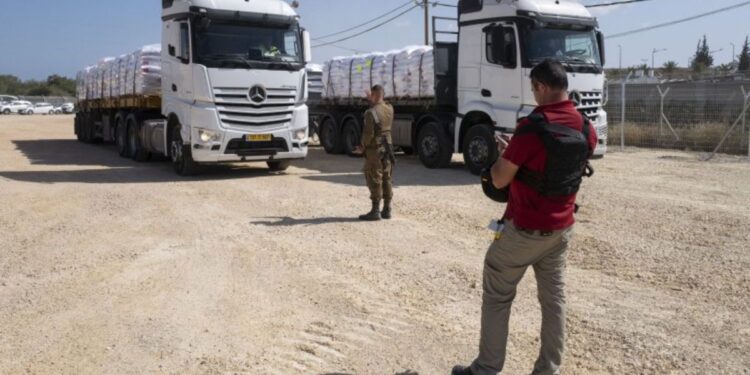According to the Gaza Health Ministry, Israeli forces have reportedly caused the deaths of nearly 35,000 Palestinians since October 7. This alarming figure highlights the dire situation faced by Palestinians, who are grappling with simultaneous challenges of famine and sanitation crises due to Israel’s actions during the ongoing war.
The United Nations Agency for Palestine Refugees issued a statement on Sunday, expressing growing concerns about hygiene and sanitation as enormous amounts of waste continue to accumulate in the Gaza Strip.
UNRWA sanitation teams are facing numerous challenges as they work tirelessly to prevent the spread of diseases. Unfortunately, they are encountering damaged machinery and are being denied access to landfills. Despite these obstacles, the teams are doing everything in their power to fulfill their duty. However, it is crucial that they are granted increased access to ensure the effective containment of diseases.
According to the agency, the city of Jabalia in northern Gaza is facing a severe waste management problem, with a staggering 40,000 tons of waste accumulating in the area. Disturbing video footage showcases the community resembling a massive landfill.
“As we transition into the summer season, there is a growing concern regarding hygiene and sanitation,” stated the UNRWA. “The presence of mosquitos, flies, mice, and rats is becoming more prevalent, resulting in the spread of diseases.”
The aid organization Doctors Without Borders, or Medecins Sans Frontiers, highlighted last week that Israel has hindered the provision of aid to injured civilians. They have done so by impeding, delaying, and limiting the distribution of crucial supplies.
An oxygen concentrator, which is crucial for treating conditions like malnourishment, severe blood loss, and respiratory distress in newborns, has been prohibited from entering any hospitals in Gaza.
Doctors Without Borders has reported that Israeli authorities have consistently denied their requests to bring essential biomedical equipment, such as an oxygen concentrator, into Gaza. Despite the urgent need for this equipment, the entry and exit points into Gaza remain under full control of Israeli authorities. Furthermore, even when a request is approved, the inspection processes at the border have been excessively time-consuming, leading to significant delays.
According to the aid organization, they have conducted an analysis of the inspections and the overall process of how materials are brought into Gaza from Egypt’s Al-Arish airport. They have found that these inspections are “opaque” and lack clarity and consistency in terms of what is permitted to enter the Palestinian territory.
According to Doctors Without Borders, Gaza used to receive approximately 500 truckloads of supplies daily before the ongoing war. They emphasize that air drops and sea corridors cannot adequately replace land routes. As of February 2024, the number of truckloads entering Gaza has reportedly decreased to below 100 per day.
The World Food Program has condemned the catastrophic famine in Gaza as a “dark mark” on the world, and has also criticized Israel for its role in the crisis.
According to a statement by the organization, children are crying out from hunger and dying of malnutrition. People are risking gunfire to reach aid convoys and surviving on animal fodder and soup made from leaves and grass. The levels of hopelessness and food insecurity are alarming, and could potentially turn a humanitarian catastrophe into something far more devastating.
According to the World Food Program, an alarming number of people, approximately 300,000, are on the brink of experiencing catastrophic famine in the coming weeks, specifically in northern Gaza. The dire situation further extends to affect around 1.1 million Palestinians in Gaza who are currently facing severe hunger.
“It’s incredibly frustrating,” expressed Matthew Hollingworth, an executive in the aid organization. “What we truly need is a torrential downpour of aid, not just a mere trickle. However, at this juncture, any endeavor to bring in more assistance is met with open arms. The magnitude of the need is immense, and we require swift approvals to facilitate continuous and substantial deliveries.”
Hollingworth mentioned that the West Bank is also experiencing the consequences of the war, with a significant number of people facing hunger in the Palestinian territory.
“People in Gaza these days don’t hear laughter,” he observed. “Instead, they hear the relentless sounds of shellfire, mortar fire, rocket fire, and small arms fire. The cries of people fill the air, and tears are a common sight.”










